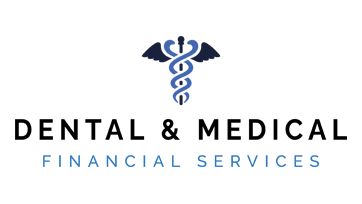
Navigating Changes in UK Pension Taxation
As we approach the beginning of a new tax year, significant changes to pensions are on the horizon, particularly regarding tax implications for pension funds. These adjustments are critical for anyone with a defined contribution pension, as they could have a lasting impact on estate planning and wealth transfer strategies.
Dental & Medical Financial Services have been assisting doctors with their financial planning for over 30 years. To learn more about the upcoming changes and how they could affect you, read on.
This does not constitute advice and advice should be sought in all instances before acting on it. The Financial Conduct Authority does not regulate tax advice. This article was approved by Best Practice IFA Group Limited on 25 February 2025.
Current Pension Tax Rules
Pension funds have long been recognised as a tax-efficient vehicle for transferring wealth to future generations. Notably, they are exempt from Inheritance Tax (IHT), allowing individuals to pass on their pension assets without incurring the 40% IHT rate. This feature has made pensions a crucial component of financial planning, particularly as they grow free from Income Tax and Capital Gains Tax.
Currently, under the existing rules, if an individual passes away before the age of 75, their pension fund can be transferred to any beneficiary entirely tax-free, provided the funds are assigned within two years. Beneficiaries can receive these funds in various forms, including tax-free lump sums, beneficiary pension funds, or annuities. However, if death occurs after age 75, the funds can still be passed on tax-free, but beneficiaries must pay tax based on their Income Tax position when they access the funds.
Key Upcoming Pension Changes
The UK government’s consultation, “Pensions Investment Review: Unlocking the UK pensions market for growth,” announced by Chancellor Reeves on January 29, aims to reform the defined contribution (DC) workplace pensions market. The final report is expected in the spring, with proposed reforms focusing on consolidation, scale, and value over cost. Key changes include establishing minimum size requirements for auto-enrolment DC schemes and permitting bulk transfers without individual consent under certain conditions.
However, the push for consolidation has raised concerns among industry experts. Critics warn that prioritising larger DC schemes may stifle competition and innovation, potentially hindering the government’s goal of boosting investments in the UK economy. There are fears that a focus on scale could lead to a homogenisation of investment strategies, diminishing the diversity that drives innovation in the sector.
In a related move, the government will extend the exemption for pension funds from the requirement to clear certain derivative contracts through a central counterparty (CCP). This decision aims to alleviate financial pressures on pension schemes, as compliance could necessitate holding more cash for margin requirements, thereby impacting member benefits and growth investments.
Additionally, another consultation on “Inheritance Tax on Pensions” has faced backlash, as proposed changes could complicate financial matters for bereaved families. The proposed changes would classify most death benefits from registered pension schemes as part of the deceased member’s estate for inheritance tax purposes. The complexity introduced by including discretionary death-in-service lump sums in a member’s estate could lead to financial hardship for bereaved families and add burdensome administrative challenges for scheme administrators. Stakeholders hope that the feedback from the consultation will prompt HM Treasury and HMRC to reconsider these proposals to create more workable solutions.
Navigate the upcoming pension changes with a financial advisor
With pension taxation undergoing such significant alterations, the need for professional financial advice has never been more critical. Doctors and dentists should consider reviewing their pension death benefit nominations and assess whether establishing a trust for pension death benefits is appropriate. Those holding tax-free beneficiary pensions should stay vigilant regarding legislative changes that may affect their financial positioning.
A financial advisor can help navigate the complexities of tax-efficient pension planning, ensuring that you make informed decisions that align with your financial goals and family’s future. Whether it’s adjusting your pension strategies or considering trust arrangements, expert guidance will provide peace of mind as you plan for the future.
The new tax year is right around the corner, so now is the perfect time to reach out to the experts at Dental & Medical Financial Services today to prepare for the future.
Free Financial Guide: Guide to Passing on Wealth

Dental & Medical Financial Services
Dental & Medical Financial Services have over 30 years of experience in building and protecting the wealth of medical professionals.
Our expertise covers:
- Financial Planning
- Mortgages & Finance
- Wealth Protection
- Investments, SIPPS & ISAs
- NHS Pension Planning
- Business Financial Protection
- Wills, IHT & Estate Planning
- Tax Planning
- Limited Company Investments
Contact Details
IFA Principal
Darren Scott-Guinness
01403 780 771
